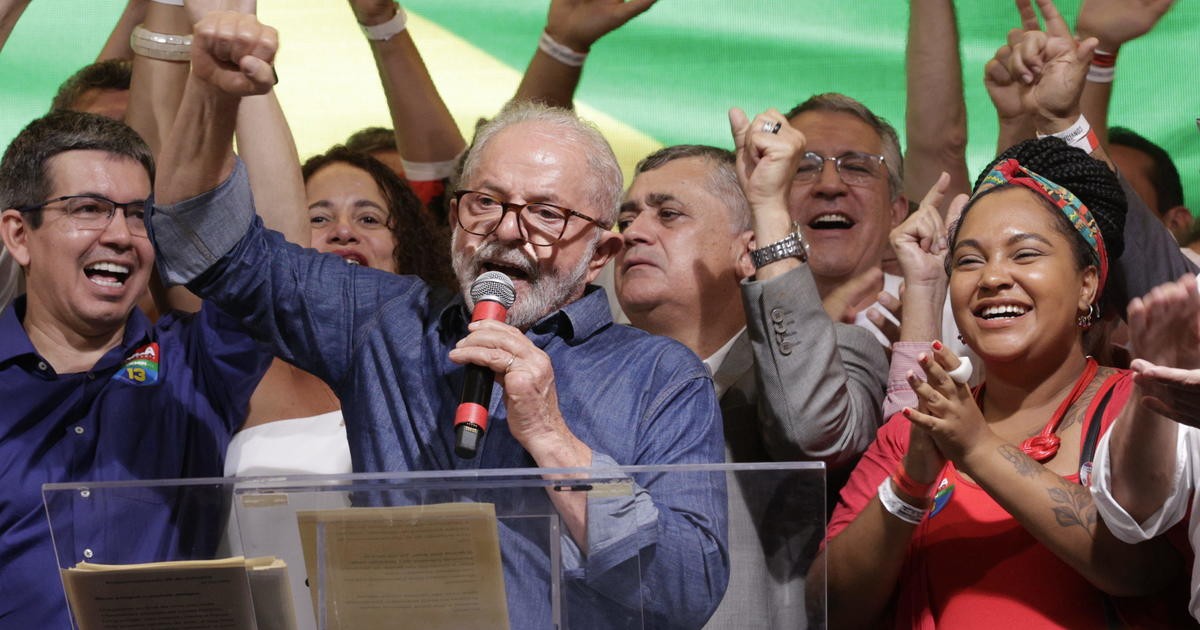 215
215
Finally, after a long period of tension and political competition in Brazil, “Lula Inacio da Silva”, a well-known Brazilian politician, was able to take over the presidential seat of his country by winning 50.9% of the total votes. “Jair Bolsonaro”, the right-wing president of Brazil, won this contest by winning 49.1% of the votes to his opponent da Silva, and the people of Brazil managed to cut the hands of the extreme right from the government for at least four years.
Da Silva won the presidency of Brazil for the third time by winning 60 million 341 thousand 198 votes from the participation of 79.41 percent of the people. Bolsonaro also won 58,203,620 votes in this election.
This is the tightest election and the closest distance between the two final presidential candidates since Brazil’s return to democracy after the rule of a military dictatorship system in the country from 1964 to 1985.
In fact, Lula da Silva became the final winner of the “most polarized” election in the modern history of this large Latin American country, which was completed without any violence despite the very close and intense competition between the two election campaigns.
Why da Silva?
The widespread popularity of Lula da Silva indicates the deep dissatisfaction of the majority of Brazilians with the policies of Bolsonaro’s government.
During the period of Jair Bolsonaro’s presence in power, we witnessed the intensification of internal political and social tensions in Brazilian society, and on the other hand, due to Bolsonaro’s specific and aggressive foreign policy, Brazil largely lost its former space and maneuvering ground in the field of regional and international equations.
In addition to the many economic challenges that Brazil has faced, especially in the post-corona pandemic period, these challenges have been greatly exacerbated by the ineffectiveness of the political populism that Bolsonaro represented, to the extent that the adoption of such ineffective policies has Significant increase in the number of deaths in Brazil as a result of the corona virus epidemic. An issue that provoked widespread criticism of Bolsonaro and his government.
Latin America is once again in the orbit of leftism
The results of the presidential elections in Brazil indicate that the leftist movement has gained new life in the Latin American region. This new wave can be seen as the continuation of the “pink wave” of left-wing governments that came to power in the 1990s. At that time, the leftist leaders condemned neoliberal policies as well as inequalities and deprivations, and as a result, social and political corruption and foreign domination of the domestic economy. According to experts, the current of the left is now back in Latin America, because the right-wing governments that replaced them and were mainly supported by the United States, could not prevent the wave of public frustration.
It seems that the re-establishment of left-wing governments indicates the rule of new equations and policies in this region, and these conditions make the White House change its foreign policy towards this region, which has always been known as the “backyard” of America.
The reaction of the Zionist regime to the victory of Lula da Silva
Not only did America lose another key ally in Latin America with the victory of “Lula da Silva” in the Brazilian presidential election, but the media of the Zionist regime also admitted that this regime is extremely angry with the victory of the anti-Western da Silva. In this regard, the Zionist newspaper “Jerusalem Post” recently published a report and wrote: “Lula da Silva is one of the most prominent supporters of Palestine in Latin America, and after her victory in the presidential elections in Brazil, Tel Aviv lost one of its allies in Brazil.” In 2010, da Silva visited the occupied West Bank and met with the officials of the Palestinian Authority under the leadership of Mahmoud Abbas, and also visited the tomb of Yasser Arafat, the former head of this organization, and laid a wreath on it, but during the same trip, he refused to lay a wreath on the tomb of Theodor Herzl, the leader of the Zionist movement . For this reason, Israeli Foreign Minister Avigdor Lieberman refused to meet Da Silva.” According to this report, during his visit to the occupied West Bank, Lula da Silva talked about his dream to see an independent and free Palestine and along with Argentina, Bolivia and Ecuador, he recognized Palestine as an independent country, and after that most of the countries of South America joined Brazil in the first quarter of 2011.
Comment
Post a comment for this article